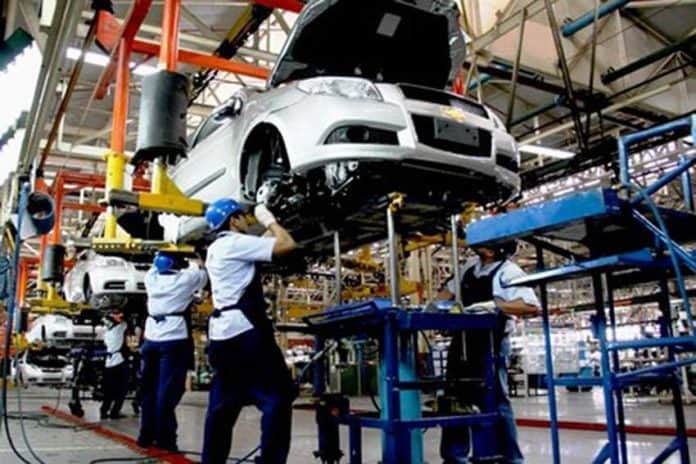Only 269,000 Mexicans earn US $16 or more per hour, the wage level proposed for specialized automotive sector workers as part of the trade agreement announced Monday between Mexico and the United States.
The amount is equivalent to about 308 pesos or three and a half times Mexico’s daily minimum wage of 88 pesos.
According to data from the National Institute of Statistics and Geography (Inegi), just 0.5% of 53.8 million workers in Mexico earn such a salary, which for a 30-day working month adds up to 74,112 pesos (US $3,880).
“It’s known that less than 1% of the working population in Mexico earns more than 10 minimum salaries [880 pesos or US $46 per day], which is about 27,000 pesos [US $1,400] per month, so earning more than 74,000 pesos is much more difficult to attain,” said José Luis de la Cruz Gallegos, general director of the Institute for Industrial Development and Economic Growth (IDIC).
The United States-Mexico Trade Agreement, as U.S. President Donald Trump called it, stipulates that 40% to 45% of vehicle content must be made in high wage zones where workers earn at least US $16 per hour.
Economy Secretary Ildefonso Guajardo said earlier this week that in time Mexico would be able to meet that requirement but for that to happen, salaries would have to increase by around two to three times.
Average hourly wages for specialized auto sector workers and mechatronic engineers currently range on average between US $5 and US $7.
Two business leaders were not optimistic that wages would increase any time soon. Gustavo de Hoyos Walter of the employers’ federation Coparmex said remuneration would not likely reach $16 an hour in the short term. Instead, he predicted some shifts in the manufacture of automotive parts between the two countries.
Guillermo Rosales of the Mexican Automotive Dealers Association said conditions won’t exist in either the short or medium term for wages to reach that level.
Arturo Rangel, a vice-president at the National Chamber for Industrial Transformation (Canacintra), told the newspaper El Universal that only managers, directors and very highly-specialized technicians command salaries equivalent to $16 an hour.
To reach that wage level for other workers, Rangel said, investment will be needed to increase automation of manufacturing plants so that an employee can simultaneously manage three or four production lines.
For his part, De la Cruz said the new auto trade rules will force Mexico to adopt an industrial policy that allows productivity to go up and the costs of inputs, such as electricity, to go down.
Better security conditions and logistics will also be needed in order for auto sector companies to be able to pay the $16 wage, he added.
Employment lawyer Ricardo Martínez said the inclusion of the wage provision in the new pact was a clear strategy on the part of Trump and U.S. trade unions to take away Mexico’s labor advantage and return manufacturing jobs to the United States.
He added that increasing salaries was a good idea but stressed that it needed to be a gradual process that doesn’t discourage investment in the auto sector and contribute to a loss of jobs.
Talks aimed at bringing Canada into the agreement reached by Mexico and the United States are taking placing in Washington D.C. this week, with Mexican and U.S. officials pushing for a deal by tomorrow.
Guajardo said Tuesday that if Canada doesn’t agree to parts of the pact, they will be renegotiated.
Canadian Foreign Minister Chrystia Freeland said today that negotiators were “working very, very intensely” and that “there’s a lot of goodwill” but added “it’s a lot that we’re trying to do in a short period of time.”
Source: El Universal (sp)
